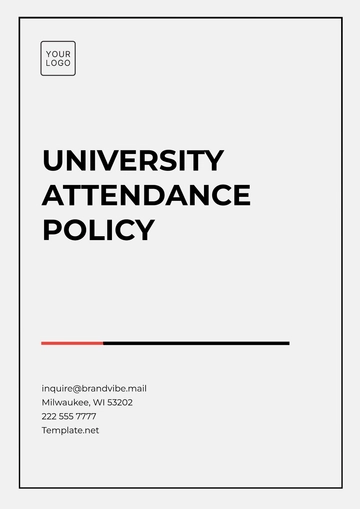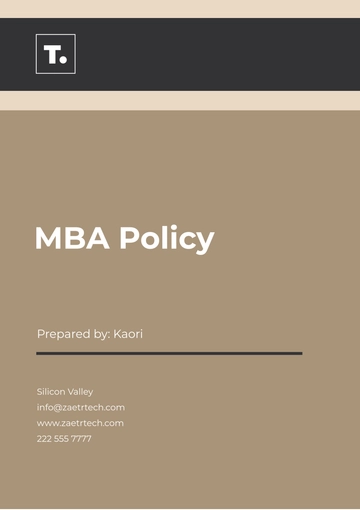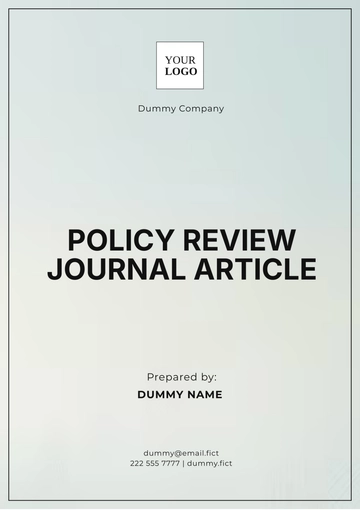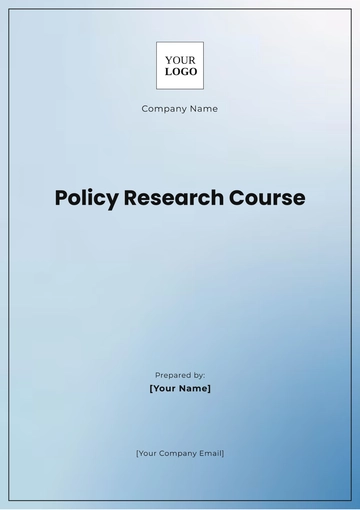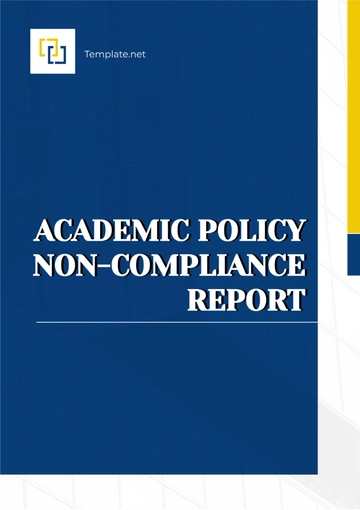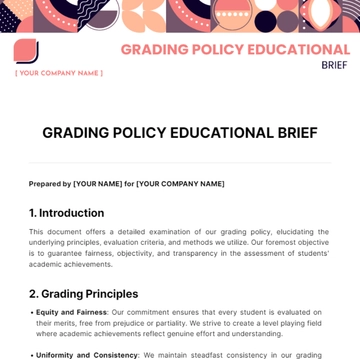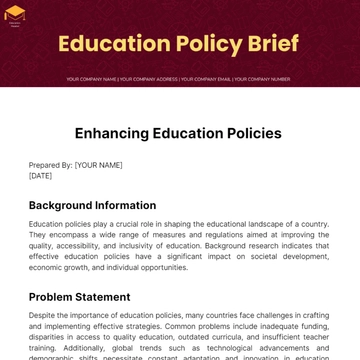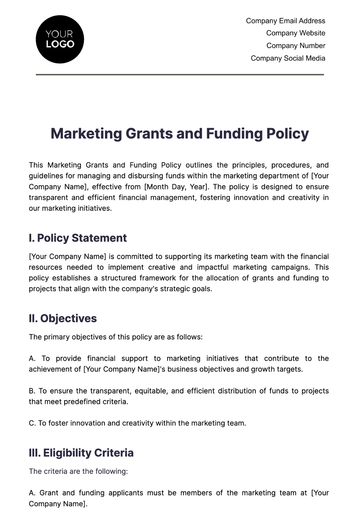Free MBA Policy
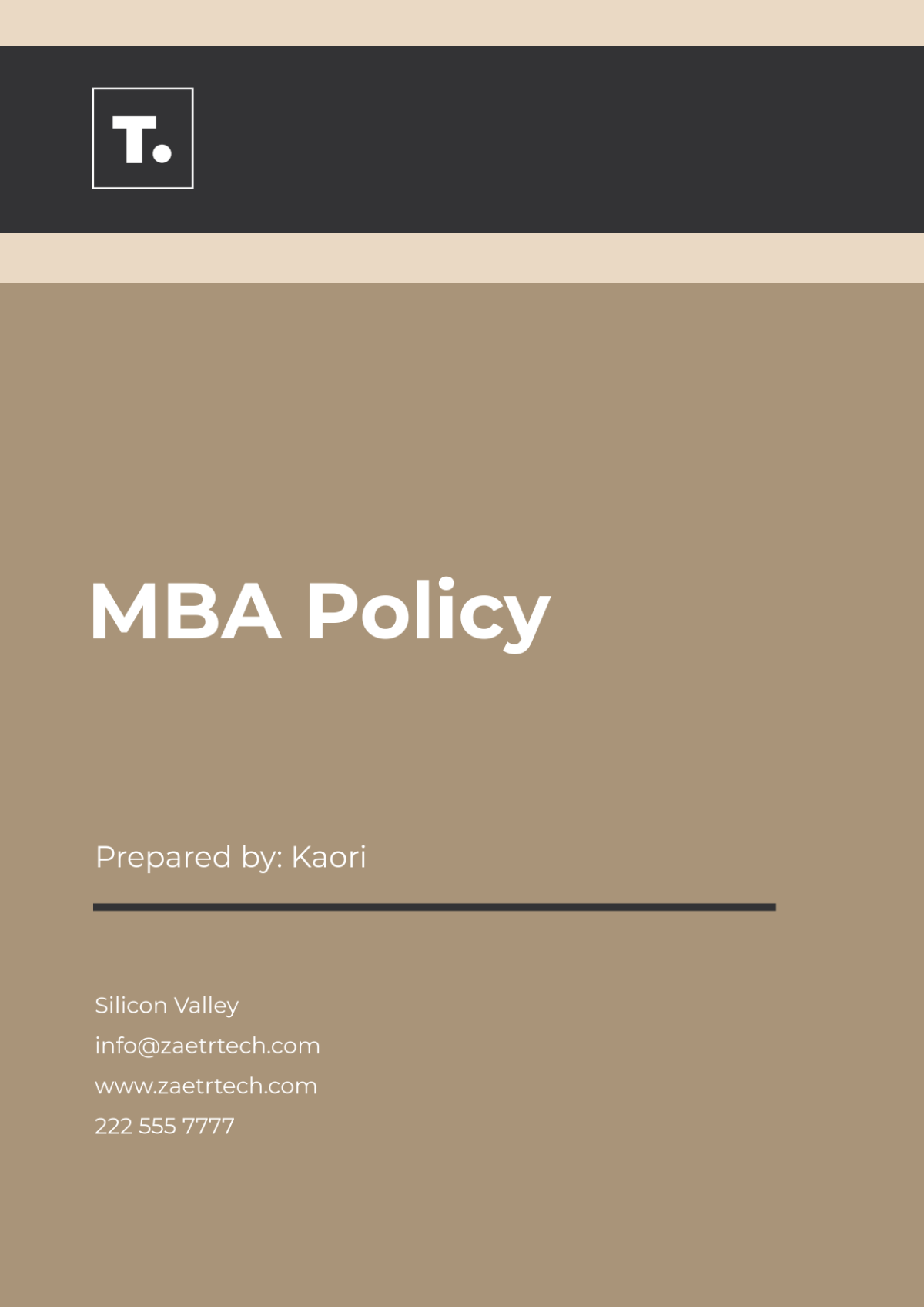
1. Introduction
The [Your Company Name] Master of Business Administration (MBA) program is designed to equip future leaders with the necessary skills and knowledge to excel in a dynamic and competitive business environment. This policy document outlines the objectives, structure, requirements, and responsibilities associated with the MBA program, ensuring a comprehensive understanding for prospective students, faculty, and administration.
In an era where businesses are increasingly impacted by globalization, technological advancement, and societal change, the MBA program aims to foster innovative thinking and practical application of business principles. This document serves as a guideline for maintaining high academic standards, promoting ethical conduct, and enhancing the overall educational experience of students.
2. Objectives
The primary objectives of the [Your Company Name] MBA program are as follows:
To Develop Critical Thinking: Equip students with the analytical skills required to assess complex business scenarios and make informed decisions.
To Promote Leadership Skills: Prepare students for leadership roles by enhancing their communication, teamwork, and problem-solving capabilities.
To Foster Ethical Understanding: Instill a strong sense of ethics and corporate social responsibility, encouraging students to consider the broader implications of their business decisions.
To Enhance Global Perspective: Provide insights into international business practices and cultural nuances, preparing students for a globalized market.
To Encourage Lifelong Learning: Cultivate a passion for continuous learning and professional development, essential for long-term career success.
3. Scope
This policy applies to all aspects of the [Your Company Name] MBA program, including:
Admission criteria and procedures
Curriculum and course offerings
Evaluation methods and grading
Student responsibilities and conduct
Financial aspects related to tuition, fees, and financial aid
Graduation requirements and process
All faculty members, administrative staff, and students must adhere to the guidelines established in this policy document to ensure a cohesive and supportive educational environment.
4. Policy Statement
The [Your Company Name] MBA program is committed to providing a high-quality educational experience that fosters personal and professional growth. This commitment is reflected in the program's curriculum, faculty qualifications, student support services, and adherence to ethical standards. The program will continually evolve to meet the changing needs of the business community, ensuring relevance and rigor in all educational offerings.
The program's faculty will actively engage in research and professional development to enhance their teaching capabilities and contribute to the advancement of business knowledge. Moreover, the program will seek accreditation from recognized bodies to ensure compliance with national and international educational standards.
5. Admission Requirements
To ensure the quality and integrity of the [Your Company Name] MBA program, the following admission requirements must be met by all prospective students:
5.1. Academic Qualifications
Bachelor's Degree: Applicants must hold a bachelor’s degree from an accredited institution. This degree can be in any field, but a background in business or a related area is preferred.
Minimum GPA: A minimum cumulative Grade Point Average (GPA) of [3.0] on a 4.0 scale is required for admission. Candidates with lower GPAs may be considered based on their professional experience and other factors.
Transcripts: Official transcripts from all post-secondary institutions attended must be submitted as part of the application process.
5.2. Professional Experience
Work Experience: A minimum of [2] years of professional work experience is required. This experience should demonstrate progression in responsibilities and can be in any industry.
Resume: Applicants must provide a current resume that outlines their professional history, including roles, responsibilities, and accomplishments.
5.3. Entrance Examinations
Standardized Tests: Applicants may be required to submit scores from standardized tests such as the Graduate Management Admission Test (GMAT) or Graduate Record Examination (GRE). A waiver may be available for candidates with significant professional experience or advanced degrees.
Test Scores: Minimum acceptable scores for GMAT or GRE will be established and published annually. Candidates should ensure their scores are sent directly to the [Your Company Name] admissions office.
6. Program Structure
The [Your Company Name] MBA program is designed to provide a balanced blend of theoretical knowledge and practical application. The program structure consists of core courses, electives, and a capstone project.
6.1. Core Curriculum
The core curriculum comprises essential business courses designed to build a solid foundation in key business principles. The following courses are mandatory for all MBA students:
Course Code | Course Title | Credits |
|---|---|---|
MBA 101 | Principles of Management | [3] |
MBA 102 | Financial Accounting | [3] |
MBA 103 | Marketing Management | [3] |
MBA 104 | Organizational Behavior | [3] |
MBA 105 | Strategic Management | [3] |
MBA 106 | Business Ethics | [3] |
MBA 107 | Operations Management | [3] |
MBA 108 | Data Analysis and Decision Making | [3] |
6.2. Elective Courses
In addition to core courses, students can choose from a variety of elective courses to tailor their education to their interests and career goals. Elective offerings will vary each semester but may include:
Course Code | Course Title | Credits |
|---|---|---|
MBA 201 | Digital Marketing | [3] |
MBA 202 | Entrepreneurship | [3] |
MBA 203 | International Business | [3] |
MBA 204 | Project Management | [3] |
MBA 205 | Human Resource Management | [3] |
MBA 206 | Business Analytics | [3] |
MBA 207 | Negotiation and Conflict Resolution | [3] |
6.3. Capstone Project
The capstone project is a culminating experience that allows students to apply their knowledge and skills to real-world business challenges.
Project Scope: Students will work in teams to identify a business problem, conduct research, and develop strategic solutions.
Presentation: Each team will present their findings to a panel of faculty and industry professionals, showcasing their analytical and presentation skills.
Credits: Successful completion of the capstone project will earn students [3] credits towards their MBA degree.
7. Evaluation and Grading
The evaluation and grading of students in the [Your Company Name] MBA program are based on a combination of coursework, examinations, and participation. This comprehensive approach ensures a fair assessment of student performance.
7.1. Grading Scale
The following grading scale will be used to evaluate student performance:
Grade | Description | Grade Points |
|---|---|---|
A | Excellent | [4.0] |
A- | Very Good | [3.7] |
B+ | Good | [3.3] |
B | Satisfactory | [3.0] |
B- | Acceptable | [2.7] |
C+ | Fair | [2.3] |
C | Passing | [2.0] |
D | Unsatisfactory | [1.0] |
F | Fail | [0.0] |
7.2. Evaluation Methods
Students will be assessed through various methods, including but not limited to:
Examinations: Midterm and final examinations will assess students’ understanding of core concepts and their ability to apply these concepts in practical scenarios.
Assignments: Individual and group assignments will encourage collaboration and the application of theoretical knowledge to real-world situations.
Participation: Class participation is a critical component of the learning experience. Students are expected to contribute to discussions and engage with peers and faculty.
Projects: Group projects will foster teamwork and provide practical experience in tackling business challenges.
8. Student Responsibilities
Students enrolled in the [Your Company Name] MBA program are expected to uphold high standards of academic integrity and professional conduct. The following responsibilities outline expectations for all students:
8.1. Attendance
Class Attendance: Regular attendance is essential for academic success. Students are expected to attend all scheduled classes and participate actively in discussions.
Absences: If a student must be absent due to illness or other circumstances, they must notify the instructor in advance and seek to make up any missed work.
8.2. Academic Integrity
Honesty and Integrity: Students are expected to adhere to principles of honesty and integrity in all academic work. Cheating, plagiarism, and other forms of academic dishonesty will not be tolerated.
Reporting Violations: Students who witness or suspect academic misconduct are encouraged to report the incident to the faculty or administration for investigation.
8.3. Professional Conduct
Behavior in Class: Students are expected to behave professionally and respectfully in class. Disruptive behavior, including excessive talking or use of electronic devices, will not be tolerated.
Dress Code: While there is no formal dress code, students are encouraged to dress in business casual attire for class and professional events, reflecting the program's commitment to professionalism.
9. Financial Policies
9.1. Tuition and Fees
The financial commitment for the [Your Company Name] MBA program includes tuition and various fees. The current tuition rate is set at [$1,200] per credit hour, with a total of [54] credit hours required for graduation. Therefore, the total estimated tuition cost for the program is [$64,800].
Additional fees may apply to enhance the educational experience, covering administrative costs, resources, and technology that support learning. Students should also be aware of the following additional fees:
Fee Description | Amount |
|---|---|
Application Fee | [$100] |
Registration Fee | [$150] |
Technology Fee | [$250] |
Graduation Fee | [$200] |
Breakdown of Fees
Application Fee: The [$100] application fee is required to process the admission application. This fee is non-refundable and must be submitted along with the application materials.
Registration Fee: The [$150] registration fee is charged each semester to cover administrative costs associated with enrolling students in courses and managing their academic records.
Technology Fee: The [$250] technology fee supports the maintenance and enhancement of digital learning platforms, software licenses, and access to online resources essential for coursework and research.
Graduation Fee: The [$200] graduation fee covers the costs associated with the graduation ceremony, including venue rental, materials, and administrative expenses. This fee is applicable to all students who apply for graduation.
Payment Schedule
Tuition and fees are due at the beginning of each semester. Students will receive a detailed payment schedule upon enrollment, outlining payment deadlines and options. Payments can be made through various methods, including:
Credit Card: Payments can be made via major credit cards, subject to a convenience fee of [2%].
Bank Transfer: Direct bank transfers can be arranged, providing a cost-effective way to pay tuition without additional fees.
Installment Plan: An installment payment plan is available, allowing students to split their total tuition fees into [three] payments throughout the semester. This plan may incur an additional administrative fee of [$50].
Students are encouraged to review their financial obligations carefully and reach out to the [Your Company Name] financial aid office if they have any questions or require assistance in managing their tuition and fees.
9.2. Financial Aid
Types of Financial Aid: [Your Company Name] offers various financial aid options, including scholarships, grants, and student loans. Students are encouraged to explore all available financial resources.
Scholarship Opportunities: Merit-based scholarships are available to eligible students based on academic performance, leadership potential, and professional accomplishments.
Application Process: Students seeking financial aid must complete the financial aid application process and submit all required documentation by the specified deadlines.
10. Graduation Requirements
To graduate from the [Your Company Name] MBA program, students must fulfill the following requirements:
Credit Hours: Complete a minimum of [38] credit hours, including all core and elective courses, as outlined in the program structure.
Capstone Project: Successfully complete the capstone project and present it to the faculty panel.
GPA Requirement: Maintain a minimum cumulative GPA of [3.0] throughout the program.
Residency Requirement: Attend a minimum of [55] in-person classes or events to foster networking and collaboration with peers and faculty.
Application for Graduation: Submit an application for graduation by the specified deadline to ensure eligibility for participation in the graduation ceremony.
11. Policy Review
The [Your Company Name] MBA policy will be reviewed annually to ensure its relevance and effectiveness. Any necessary updates or revisions will be made based on feedback from faculty, students, and industry stakeholders. The review process will involve:
Feedback Collection: Gathering input from students and faculty regarding their experiences and suggestions for improvement.
Data Analysis: Analyzing enrollment trends, graduation rates, and student performance metrics to assess program effectiveness.
Policy Revisions: Implementing changes as needed to enhance the overall quality and relevance of the MBA program.
12. Contact Information
For additional information regarding the [Your Company Name] MBA program, prospective students and other stakeholders can contact:
Office of Admissions
Email: [Your Company Email]
Phone: [Your Company Number]
Address: [Your Company Address]
Website: [Your Company Website]
This policy document serves as a foundational resource for all participants in the [Your Company Name] MBA program, outlining essential guidelines for academic and professional success. By adhering to these policies, students, faculty, and administration can contribute to a vibrant and effective learning environment, preparing the next generation of business leaders for the challenges of the future.
- 100% Customizable, free editor
- Access 1 Million+ Templates, photo’s & graphics
- Download or share as a template
- Click and replace photos, graphics, text, backgrounds
- Resize, crop, AI write & more
- Access advanced editor
Define essential guidelines with the MBA Policy Template from Template.net. This editable and customizable template helps you create clear and structured policies for MBA programs, covering academic, behavioral, and administrative standards. Personalize it using our Ai Editor Tool to ensure comprehensive compliance across your institution.
You may also like
- HR Policy
- Restaurant Policy
- Company Policy
- Accounting Policies and Procedures
- Website Policy
- Privacy Policy
- Safety Policy
- School Policy
- IT and Software Policy
- Law Firm Policy
- Construction Policy
- Interior Design Policy
- Travel Agency Policy
- Education Academic Policy
- Security Policy
- Real Estate Policy
- Expense Policy
- Software Policy
